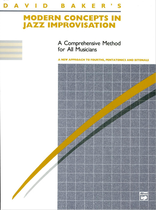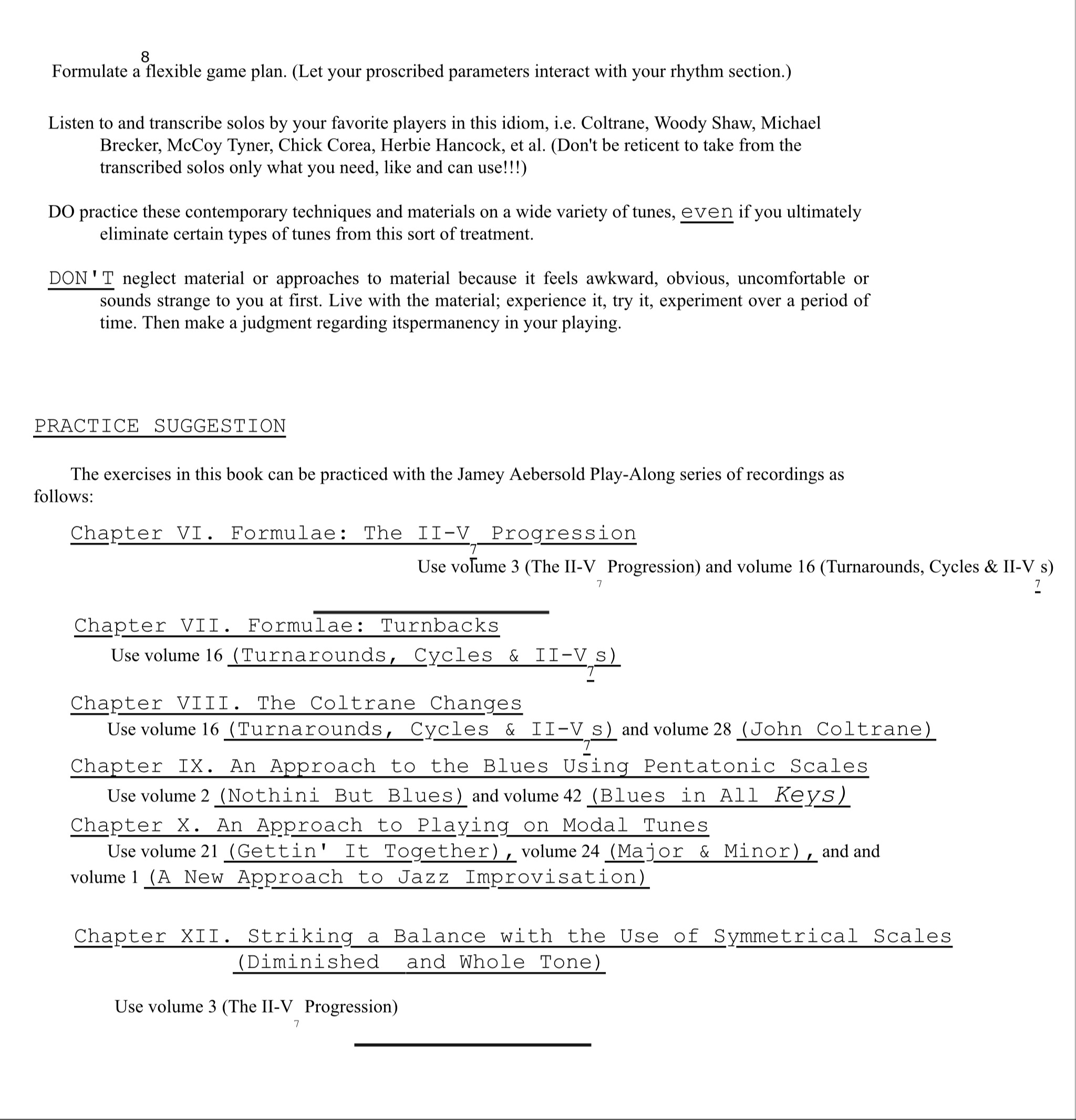Ontimpr12. Positive Evaluations of Good Improvisations
Discussion[edit]
What makes improvisations good?[edit]
One can specify what jazz educators and musicians consider positive aspects of an effective jazz solo during an improvisation.
An effective improvisation occurs when a performer:
- 1. Demonstrates a knowledge of musical theory.
- 2. Uses melodic motifs and/or sequences.
- 3. Plays with appropriate time feel and/or rhythm.
- 4. Plays with good technical facility.
- 5. Develops the solo in a logical manner.
- 6. Plays with emotional expression.
- 7. Plays with appropriate style.
- 8. Shows imagination and creativity.
- 9. Effectively uses chromatic approach tones.
- 10. Has effective interaction and dialog with musical partners.
“To be a competent jazz improviser, a musician must understand theory and harmony, have a background of intensive ear training, and be highly proficient on his performing instrument. Furthermore, his mastery of compositional tools is appraised every time he performs because jazz improvisation consists of simultaneously composing and performing.”[1] (bold and bold italic not in original)
David N. Baker (1931-2016) American jazz composer, conductor, musician, and former Director of Jazz Studies at Indiana University,[2] supplies a list of "Guidelines for Contemporary Playing" at the beginning of his well known textbook for jazz students,
Modern Concepts in Jazz Improvisation, (1990)  , on pages seven and eight.
, on pages seven and eight.
To fail at any of the above factors is to make one’s performance open to the criticism that one has made mistakes. For more on mistakes in jazz see the PoJ.fm's Mistakes page.
Important factors for assessing the quality of an improvisation:
- 1. Personal/individual voice (auditory tonal style).
- 2. Individual expression (can express musical ideas that reveal emotions or show a 'spirituality,' etc.).
- 3. Clarity of musical thought and purpose.
- 4. Aesthetic relationships related to the following: consistent with, aberrant from, poorly executed, masterfully performed, extended and insightful musical addition, etc. to the original.
NOTES[edit]
- ↑ "Is Jazz Popular Music?," Mark Gridley, February 12, 2019.
- ↑ Baker served as both conductor and musical artistic director for the Smithsonian Jazz Masterworks Orchestra and created more than sixty-five recordings, seventy books, and four hundred articles. See Wikipedia: David N. Baker.

